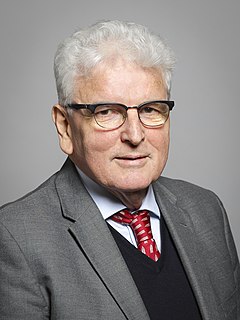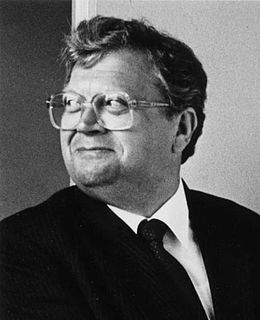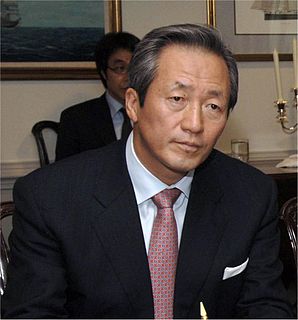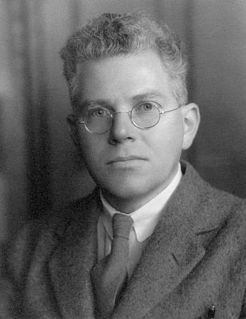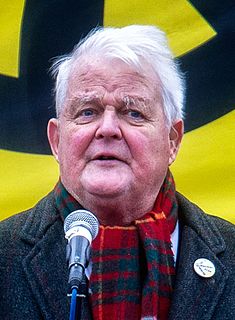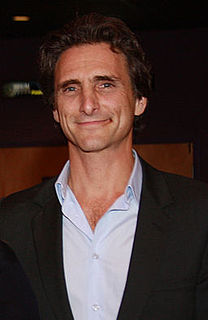A Quote by Des Browne
Nuclear weapons are infinitely less important in our foreign policy than they were in the days of the Cold War. I don't think we need nuclear weapons any longer.
Related Quotes
What is the only provocation that could bring about the use of nuclear weapons? Nuclear weapons. What is the priority target for nuclear weapons? Nuclear weapons. What is the only established defense against nuclear weapons? Nuclear weapons. How do we prevent the use of nuclear weapons? By threatening to use nuclear weapons. And we can't get rid of nuclear weapons, because of nuclear weapons. The intransigence, it seems, is a function of the weapons themselves.
I don't want to use the term "nuclear weapons" because those people in Iran who have authority say they are not building nuclear weapons. I make an appeal to the countries who do have nuclear weapons. They don't consider them a nuclear threat. But let's say a country that doesn't have nuclear weapons gets involved in building them, then they are told by those that already have nuclear weapons that they oppose [such a development]. Where is the justice in that?
I, who had been in favour of nuclear energy for generating electricity ... I suddenly realised that anybody who has a nuclear reactor can extract the plutonium from the reactor and make nuclear weapons, so that a country which has a nuclear reactor can, at any moment that it wants to, become a nuclear weapons power. And I, right from the beginning, have been terribly worried by the existence of nuclear weapons and very much against their use.
Presidents should be very careful at all times in discussing the use or non-use of nuclear weapons. Presidents since the cold war have used nuclear deterrence to keep the peace, and I don't believe that any president should make any blanket statements with respect to the use or non-use of nuclear weapons.
We won't take any of the talks seriously if they don't do something to ban all nuclear weapons in North Korea. We consider this to be a very reckless regime. We don't think we need a Band-Aid, and we don't think we need to smile and take a picture. We think that we need to have the, stop nuclear weapons, and they need to stop it now. So, North Korea can talk with anyone they want, but the US. is not going to recognize it or acknowledge it, until they agree to ban the nuclear weapons that they have.
The worst part of what we heard Donald [trump] say has been about nuclear weapons. He has said repeatedly that he didn't care if other nations got nuclear weapons, Japan, South Korea, even Saudi Arabia. It has been the policy of the United States, Democrats and Republicans, to do everything we could to reduce the proliferation of nuclear weapons.
Basically [United States and France] said "We will use nuclear weapons whenever it suits our purposes to do so." So this expansion of doctrines regarding possible use of nuclear weapons makes them more, you know, sort of, salient and important and so it's increasing the perceived political value of nuclear weapons and therefore causing or contributing to possible proliferation.
Yes, I think lots of people are eager to obtain weapons of mass destruction. But there's no evidence that he has weapons of mass destruction. There's been no evidence of him testing nuclear weapons.
We have people that are in our face with nuclear weapons. We've got Iran and North Korea. We've got a problem with Pakistan. You know, I don't know what to say about that.
There's a whole lot of people that are going nuclear. And I think that Saddam Hussein is actually, with the evidence, the least able to use nuclear weapons and the least obvious offender in that area at this moment.
The cavalier casual way that Donald Trump talks about nuclear weapons is not only frightening but it goes counter to more than 70 years of bipartisan, presidential leadership of Republicans and Democrats who believed that we have to prevent other countries from getting nuclear weapons and we have to do what we can to decrease the number of nuclear weapons in the world.
